#words alike
Text
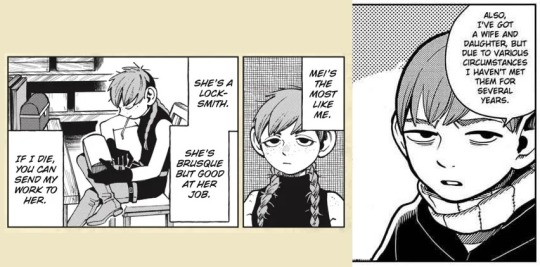
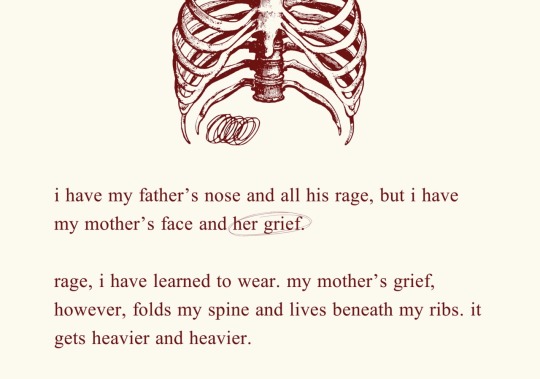

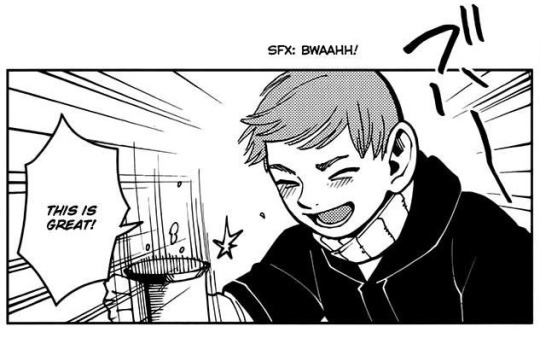
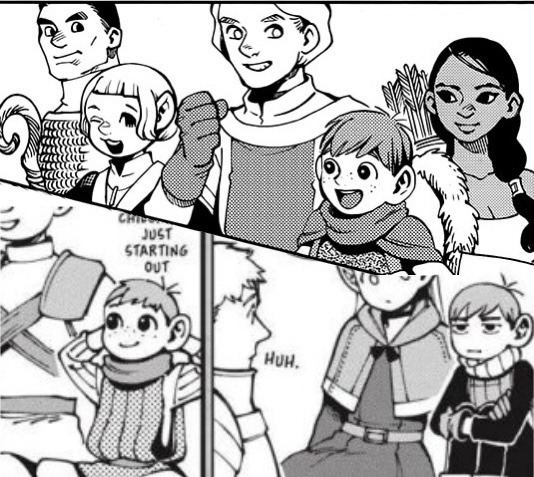
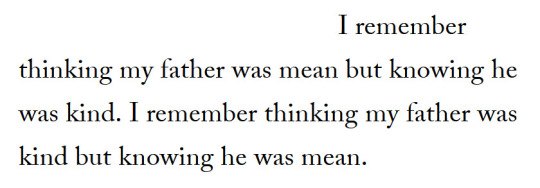
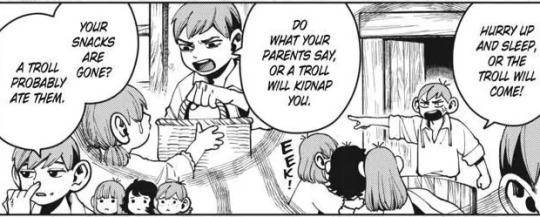


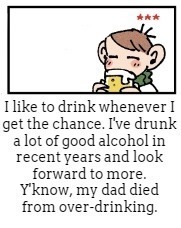
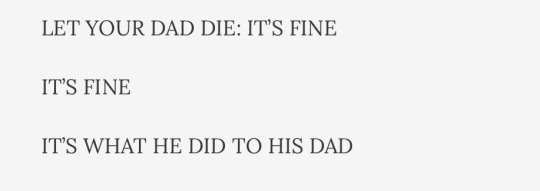
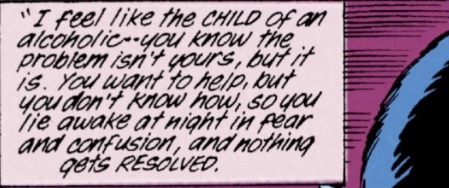

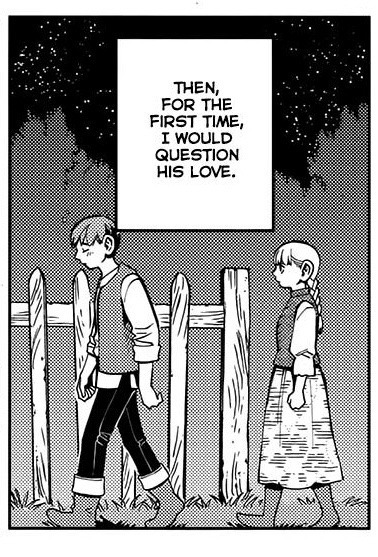
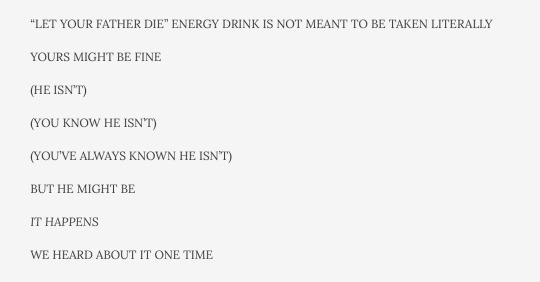

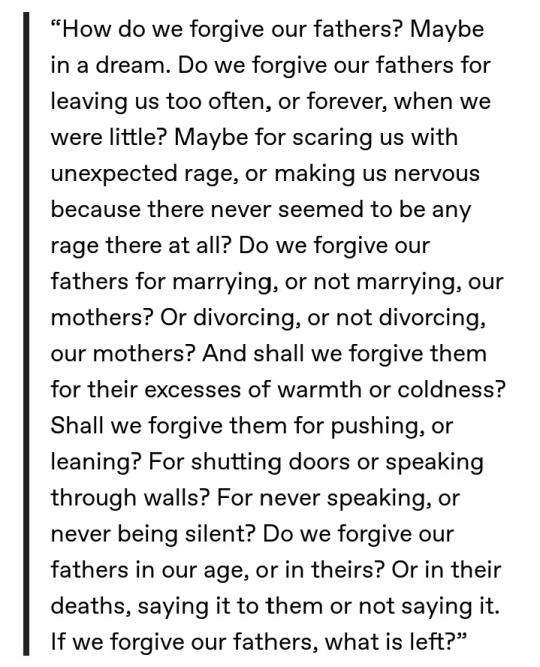
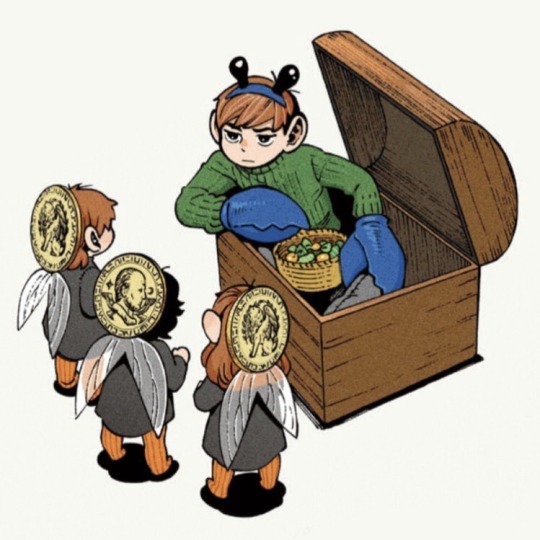

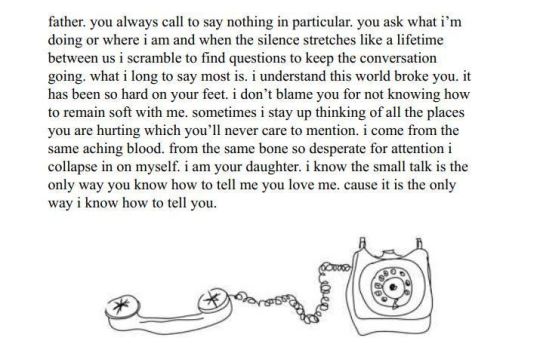
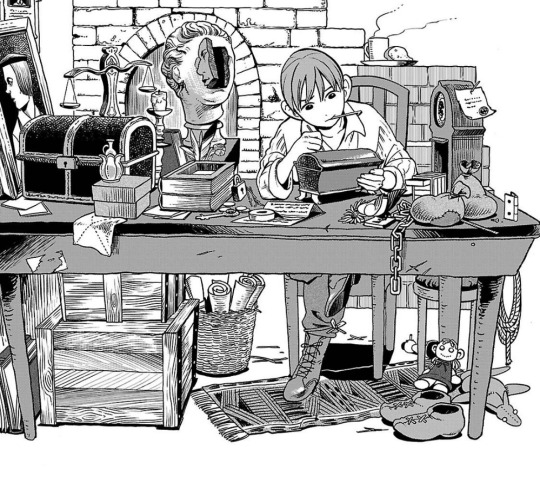
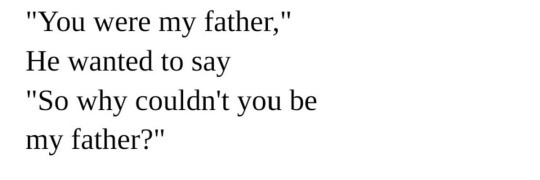
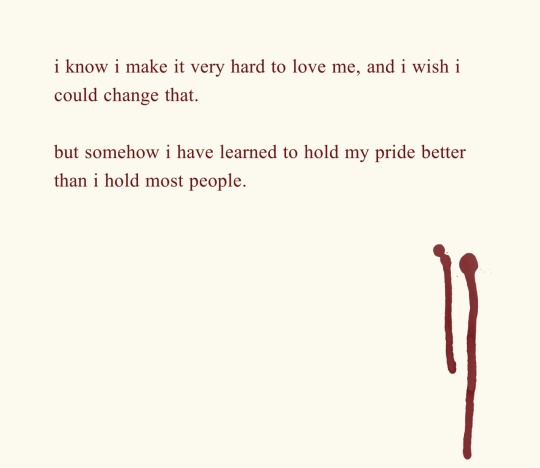


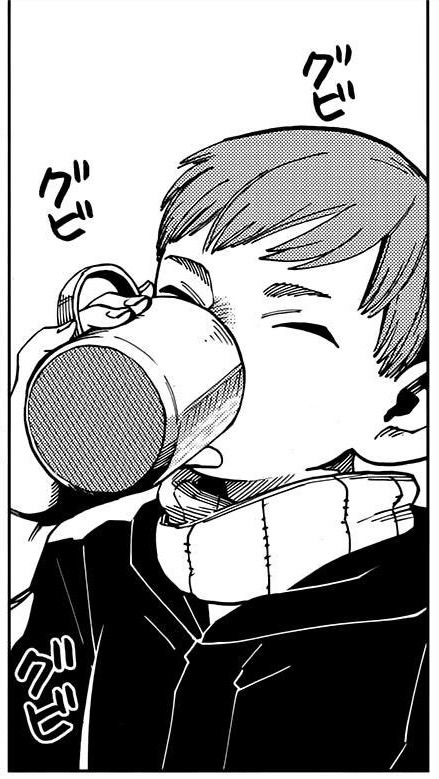

Dad always said I was like him
Meijack and Chilchuck Tims
Dungeon Meshi, Ryoko Kui
^ 1: Moony moonless sky, Fatima Aamer Bilal / 2: Bug like an angel, Mitski / 3: Woodtangle, Mary Ruefle / 4: The Third Hour of the Night, Frank Bidart / 5 & 6: FROM THE MAKERS OF "TWO-MOM ENERGY DRINK," IT'S "LET YOUR FATHER DIE ENERGY DRINK,", Daniel Lavery & Cecilia Corrigan / 7: Batman: Year Three (1989) / 8 & 9 : FROM THE MAKERS OF […], Daniel Lavery & Cecilia Corrigan / 10: Wilt, CJ the X / 11: How Do We Forgive Our Fathers, Dick Lourie / 12: Milk and honey, Rupi Kaur / 13: And My Father's Love Was Nothing Next To God's Will, Amatullah Bourdon / 14: Moony moonless sky, Fatima Aamer Bilal / 15: Someday I’ll Love Ocean Vuong, Ocean Vuong / 16: untitled, Joan Tierney
v 17: Drunk, The Living Tombstone / 18: unknown
When your father tried his best to provide for you but he worked all the time and even when he was home he was either tired or stressed and he’s always liked to get drunk to relax and cheer up. When you know he values work ethics and respectability so you grew up to be capable and quiet. And when he says you’re like him you’re sort of puzzled, does he really know you so little, or does he know himself so little? But you like the feeling of your father ruffling your hair so you accept it, and still you stand next to your mother just as silent and just as stoic as her during family gatherings. He leaves again and again and when your mother leaves him nothing changes, really. You wonder if it’s more telling that you know him better than he seems to himself or that you don’t know him as much as you wish you did, or that you don’t think about him all that much these days. Out of sight, out of mind. And he’s never really been there, even when he was there, after all.
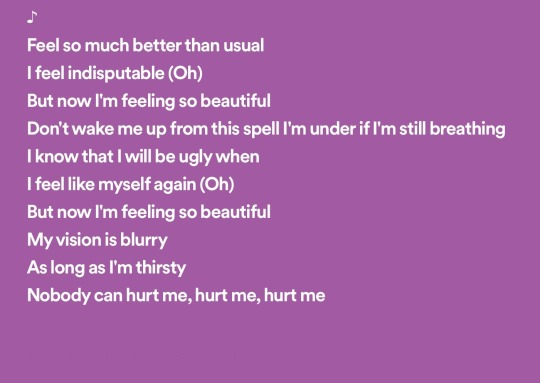
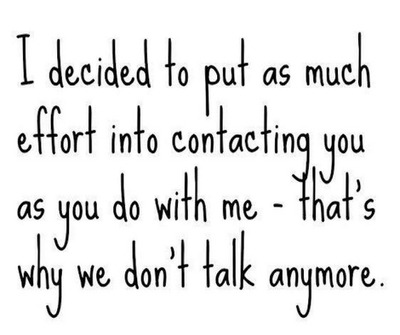
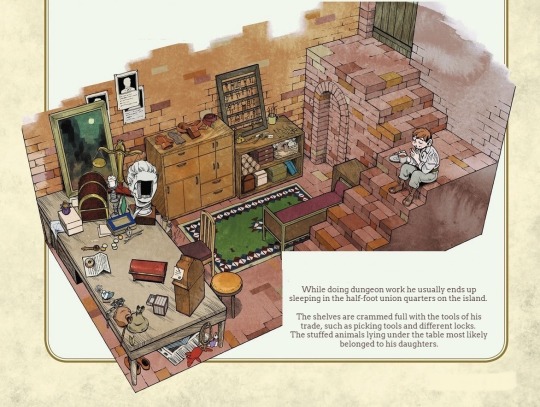
#It’s ok they do get in touch again and he prob at least lives to 40#Alright I’m ready to be normal about chilchuck again#Spoilers#I guess?#dungeon meshi#chilchuck tims#meijack#chilchuck’s family#meijack chils#Web weaving#alcoholism#cw alcohol#webweave#A couple more i liked are like a rearview mirror we’re not as close as we appear line and this french one from#Kristina Gauthier-Landry that goes like hands full of trout running up to you / look what i caught look / how much you love me#And this other one about chocolate coins that a dad arriving from work in middle of the night gives the happy little daughter running up#And it’s so anticlimatic and about transactional relationships and oughh ough it’s a good book#I am Chil is a complex absentee father truther sorry. Idc go see my analyses if you want don’t argue w me here#posts for which i am the target audience#Oh oh another one : So were we close? Or was it just the big things that held us together and the small things that let us fall apart?#The word father rotted in my mouth#Bc it’s left there to rot get it get it………..#Sigh. Like father alike daughter#I’m a truther that she’s more like her mom demeanor wise
404 notes
·
View notes
Text
The real truth is that every single Jason Todd ship exists only for his benefit, and not his partner's. It's not just Jayroy, though that may be the most extreme example of it alongside jaytalia. Any character who is romantically involved with Jason has to be bastardized to some level, either because their morality would make it impossible for them to be with Jason (Roy, Kyle, Kara, Steph, Barbara, etc) or because Jason's character would go entirely against what their character needs/is working towards (Rose, Artemis, Kori, Slade, etc). It's always about what Jason needs and what Jason could get from that potential relationship, because he doesn't really... have anything to offer. Jason as Red Hood centers his story in violence and self-isolation. Even in his current The Hill run, where he's learning to trust people yada-yada, he's lonely. Because he chooses to be. And that's why every Jason Todd ship feels forced if you're a fan of whatever partner of choice, because Jason isn't at a point of himself and his life where he can offer anything in a relationship. Idk word vomit sorry
#to be clear i say this as someone who enjoys multiple of those ships#not every piece of fan content needs to ain for character development#but this IS a pattern i see ignored by both jason fans and jason antis alike#or more like jason antis dont really word it like this#dc comics#jason todd#ramble ramble ramble#batman#red hood
144 notes
·
View notes
Text


escaping from your purpose is impossible.

#op#art#jjba#akira otoishi#diamond is unbreakable#jjba diu#jjba part 4#jojo part 4#jojo diu#diu#akira jjba#jjba akira#akira jojo#jojo akira#otoishi akira#jojo's bizarre adventure#jojos bizarre adventure#jojo no kimyou na bouken#wow akira thats another really great disguise#tbh akira isnt really like the b.atter at all. hes way too silly and chatty but tbh theyre alike in the way that they dont rlly like#listening to ppl LOL. iirc there are times in game where if u direct the b.atter toward a place he says ''im not going that way'' flat out.#hes so blunt... & akira does kind of have his Serious taunting lines#iirc is the key word here i havent played off in yearsssssssss ;w;#eyestrain
58 notes
·
View notes
Text
Justin Roiland (season six) // Ian Cardoni (season seven)
#in other words: almost identical#people keep using clips from season one and going 'they sound nothing alike!!'#pretending to forget that JR adjusted rick's voice a lot as the series went on#rick and morty#ian cardoni#rick sanchez#season six#season seven#final desmithation#mort: ragnarick
99 notes
·
View notes
Text
there's a bathroom in mickey's room -> mickey's room is the master bedroom -> terry must have "allowed" (read: decided) this, and probably framed it as an incredible privilege -> in practice it's actually just a built in lack of privacy for mickey since the bathroom is treated as communal, meaning anyone can go into his room at any time without warning to get to the bathroom inside
#jack facts#i know the doylist explanation for how terry seems to particularly target mandy and mickey#is just that they're the only two milkoviches who are focal characters#but watson's perspective on it is soooooo juicy#like ok he targets mandy because she's a girl and because she looks like their mom. makes sense.#but why does he target mickey pre-3.06?#is it because he must also look like their mom given how much he and mandy look alike?#it's a good bet; only the two of them really look like that#tony and [?] have dark hair but are beefy with blunt features like terry + iggy and [?] are thin but blond#OR i mean. we've all Been There for when the mean girls know what slurs to call you before you do#and in many cases they don't really know those words genuinely apply they just Happen to be an applicable insult#for whatever esoteric fucking reason that people recognize someone is Different#(and in the opposite way how we Different folks tend to stick together even before we know why)#anyway. you know what i'm implying here.#shameless#mickey milkovich#hc#abuse
40 notes
·
View notes
Note
YALLER
Yaller...
"Yaller need therapy once he's done with you."
I'm sorry. I have nothing to say for myself 😔
Yaller= yall will = you all will
I'm not even country or anything this is just gen how I speak. I try spelling out what comes through my head but sometimes I forget and just like spell/sound out what words sound like to me lol
A more accurate spelling would have been "Y'all'll" ? (ew the apostrophes make it look ugly) but the way I say it out loud sounds more like "yaller"
You all should be thankful you can't hear the way I speak it's honestly an atrocity
#used to have a speech impediment when I was younger too that I had to take speech therapy classes for. and /I/ think I successfully got rid#of the impediment fully but every one in a blue moon someone will ask me what my accent is “is it british/scottich/Australian/etc?” and I#have to say “no. it's a speech impediment” and then it's awkward bc they now feel bad for pointing it out. and i feel bad for making them#feel bad. (also people do NOT know accents bc I have literally been asked if i was so brit/scot/aus#and those accents sound NOTHING alike like wtf?#like NO. I'm mexican/american leave me alone 😭 and then the way I combine my words together my speaking voice is horrible I have to try so#hard to speak normally#so yeah be thankful you can't hear my speak#thanks for coming to my ted talk
28 notes
·
View notes
Text

if i’m late to work tomorrow it’s because i stayed up late riding the fucking high of being compared to suzanne fucking collins
link if ya nasty
#AAAAAAAAAAAAAAAAAA#sorry to fucking. gush on you all but holy shit this is the closest i could do to print it out and frame it on my wall#i snorted this comment like a fucking crack rock#i really did try to make this story enjoyable for both sole hg fans and cod fans alike#and the fact that it’s translating i’m RRRRRRRRRRRRRR#for being a writer it is very difficult to put the primal feeling y’all are unleashing in me into words#thg series#x reader#the hunger games#konig#konig cod#call of duty#cod#könig#könig cod#konig call of duty#könig call of duty#uhohspeaks#tgwcm
40 notes
·
View notes
Text
i truly don't understand how #They continue to interpret the point of "my dad and i don't really talk. and when i was at the 118, i had gerrard. which did not make me a better person... come to think of it, captain gerrard was like having the dad i already had." as captain gerrard was like a father figure to me (i looked up to him) instead of the fairly obvious my dad is an asshole (just like gerrard). they want and/or believe tommy to side with gerrard when it's pretty fucking clear he does not like the man. i do think tommy and buck might have different approaches to dealing with his bigotry though, which could lead to conflict. but acting as if tommy (presently) has any sort of admiration for the man who called him a slur to his face is just straight-up ignoring the text of the show.
#the dinner scene wasn't 'captain asshole was a father to me' it was 'my dad and captain asshole are very much alike'#'but that means those were the male role models i had in my life and i was a worse person for it'#i hope i worded this clearly but i feel like those two things are distinctly different#bucktommy
38 notes
·
View notes
Text
for a character with a reputation of being extremely rational and logical, many of ludger's actions are actually quite emotionally motivated. even when he stays oblivious to his true emotions, there are still many instances where we can see how they unknowingly manifest in his actions and subtly influence his biases. i think ludger's second most toxic trait is that he tends to subconsciously cook up a seemly logical reason to spontaneously cover up his emotional ass because he cannot admit to himself that he feels emotions intensely.
exhibit A: his vengeance for arte's death required him to admit that he had a strong attachment to the kid, so he stated that eliminating the evil and offering solace to the victims were the actual reasons. counter: there were many better ways to deal with delica's incidents if his goal was simply enacting justice. even hans realised that this was a weak excuse to conceal his regrets.
exhibit B: his mercy towards aiden required him to admit his unwillingness to eliminate him, so he covered it up by reasoning that it would be too risky to take a student's life. counter: we know very well that he's fully capable of eliminating someone without leaving a trace if he puts his mind to the task.
exhibit C: his sparing casey's life twice required him to admit his disinclination to kill her, so instead, he reasoned that she was more useful alive and that her excessive pride wouldn't let her easily expose him to the public anyway. counter: strategically speaking, turning her against blackdawn was an obvious blunder. he didn't even need her to deal with them. plus, somehow he conveniently forgot at the moment that casey could still have told her best friend, terinna, about his identity regardless of the matter of pride and subjected him to even worse danger.
exhibit D: his taking owens under his wings and founding u.n. owen required him to admit his emotional bonds to them, so he claimed that he needed a strong fortress for his goals and his own protection, especially against the bretus. counter: considering his op-ness, he had never really needed protection. he also mainly tasked owens with leg work while dealing with most of the dangers by himself. he even ended up disbanding them to confront bretus on his own and telling them to prioritize their lives over his goals.
at first glance, his reasoning might seem sound and logical, but if we look at them for more than ten seconds, they are actually quite flimsy and contradictory. this is not to say he's inherently an idiot or a terrible liar. ludger's capability of reasoning is proven comparable to that of casey. he is also an excellent liar when it comes to deliberately lying to someone. but how does one reason or lie about feelings that they themselves are not even aware of?
my hypothesis:
when his suppressed emotions subconsciously influence his biases and/or manifest into his actions, ludger needs to convince himself that he is still being logical, and thus, without even realising it, he tries to rationalize them and grab onto whatever reason that momentarily sounds in his mind: why was he so dedicated to teaching his students? he couldn't get caught half-assing his job, and he wanted to earn the trust of the president. why did he save esmeralda? quasimodo annoyed him, so he had to step in. why did he delay the first princess' orders and prioritize the students' safety during the attacks on the capital? it was the princess' trusted blade himself who suggested saving the students, and not him. why did he accept casey's companionship during his moriarty's era? it was an act, and he was simply getting into his character.
whether ludger wants to admit it or not, he has always been a person moving according to his emotions. and the actual reason why we see so many inconsistencies and hypocrisies in his actions when aligning all of them together with his own logic is that his reasonings are only flimsy excuses that his subconsciousness makes up on the fly to rationalize away his repressed emotions, i.e. his strong attachments to this world.
#academy's undercover professor#academy's undercover professor spoilers#ludger cherish#ludger is a very unreliable narrator#because what he actually wants and what he thinks he wants are two very different subjects#it says a lot when even tho his end goal is breaking the cage and reclaiming his past he still ended up risking everything to save grander#trust not his words but his actions#if you ever find his reasoning for his actions contradictory/hysterical there r good odds that he's lying his ass off without even knowing#conveniently he also tends to not think about these excuses for more than ten seconds#you may also see some of this behaviors in casey bc thats how alike they are#food for thought: what does this mean for the fiances arc?#ahem. that will be left as an exercise for the readers.
69 notes
·
View notes
Text
Mokumokuren
Birds of different feathers flock together
Noticed online by head-hunting publishers, Mokumokuren hasn’t waited very long before polarising the attention of Japanese readers. With strange The Summer Hikaru Died, horrific bromance dealing with body dispossession, the mangaka signs a series of sophisticated oddity, that sets itself apart from the predictability of current fantasy productions.
Interview by Fausto Fasulo. Original translation: Aurélien Estager. English translation: “Keikotwins”. Bibliography: Marius Chapuis. Thanks: Camille Hospital & Clarisse Langlet (Pika), Yuta Nabatame, Mayuko Yamamoto & Mana Kukimoto (Kadokawa), Chiho Muramatsu (Tohan)
(T/N: Interview given to ATOM in winter 2023; 2 volumes were out in French.)
-
In an interview given to the CREA website in November 2022, you confided inventing stories since very young. Did your first fictions resemble the ones you draw nowadays?
It’s true that there are quite a lot of common points between the stories I imagined when I was a child and the ones I tell nowadays in my mangas. Especially a specific motif, that has been haunting me since the time when I wasn’t really aware of the world surrounding me: the presence amongst us of “non-human” beings, that nonetheless have a perfectly normal, ordinary appearance…
And how was this “obsession” born?
Precisely identifying the origins is complicated, my memories are too blurry, I think… What I can tell you is that I’ve always been fascinated by “creatures”. For example, I remember being very impressed by Peter Jackson’s bestiary in the Lord of the Rings trilogy. By the way, still in a fantasy register, I am also a big fan of Harry Potter adaptations… (She thinks.) And I’ve always liked yōkai stories, you know. I think that what I like in all these mythologies is the idea of species classification: each has its own characteristics – physical, biological – its own way to apprehend its environment.
In Japan, yōkai are integral part of regional folklore. Did the place you grew up in have some specific beliefs?
I was born and grew up in Tokyo, and, as you must know, yōkai are mostly associated with rural areas. I was thus never really bathed in this type of regional fantasy folklore. There are all kinds of yōkai and we can perhaps see in some more contemporary urban legends the echo of certain past beliefs? (She thinks.) I am a bit frustrated, because I believe that I could remember a legend that would have impacted me, but nothing comes to mind immediately, sorry!
You have already said so in an interview and it’s quite obvious when reading your work: you are a big amateur of horrific fiction. What has been your first contact with the genre, all medium included?
It was television that introduced me to horror: special shows, television films, series, I was watching these programs with a mix of fear and enthusiasm, a confused sensation that particularly delighted me! (She thinks.) And amongst all the aired shows, I will remember two titles: Hontō ni atta kowai hanashi and Kaidan shin mimibukuro*.
* Inspired by the homonymous manga magazine published by Asahi Shimbun, Hontō ni atta kowai hanashi (lit. “Scary stories that really happened”) is a series produced by Fuji Television that has been airing more or less weekly since 2004. Derived from literary material (a series of compilations of hundreds of short stories by Hirokatsu Kihara and Ichirō Nakayama, published from 1990 to 2005) Kaidan shin mimibukuro is a series made of several short movies depicting ghost stories based on real testimony.
Did you read horror mangas when you were young?
Let’s say that I was more interested in live-action productions. Nowadays, I obviously appreciate some horror manga authors, without pretending to be any expert in the subject. For example, I like Junji Itō’s work, but I am far from knowing it for a long time… (She thinks.) I could also talk about Shigeru Mizuki, who I also appreciate a lot.
The mechanics of fear aren’t the same in occidental and oriental fictions. You like American horrific productions – like Ari Aster movies – as much as ones from Japanese origin – you notably quote Ichi Sawamura novels and Kōji Shiraishi feature films. Can we say that you are tying these two perspectives with The Summer Hikaru Died?
My relationship with horror is more imbued with oriental sensitivity. But what I find remarkable in occidental horrific productions is work on image. In The Shining like in Ari Aster movies, for example, there is real research made on frame composition and choice of colours. I also try to follow this aesthetic reflection in my work as a mangaka.
In Ari Aster’s work, beyond the very precise staging, there is this permanent desire of ambiguity. Do you try to dig this same equivocal trench?
Absolutely. I try to tell complex feelings as well in The Summer Hikaru Died, like fear dyed with nostalgia or attachment, repulsion mixed with fascination, with attraction…
How do you “sort out” the shots that inspire you in cinema?
I don’t draw while freeze-framing during specific scenes. I would always rather watch a movie as a “focussed” spectator. However, I pay a lot of attention to the way the director composes their frame. I sometimes take some notes, but I most often simply keep it in a corner of my mind.
Could you tell us when and how the story and characters of The Summer Hikaru Died appeared to you? Have they matured a long time within you?
I’ve started thinking about this story when I was preparing university entrance exams. I was aspiring to join an art uni, and I was drawing every day. I can’t really say I made my characters “mature”: back then, I wasn’t thinking that the drawings I was making would one day end up being published, way less being serialised! I innocently created characters close to me, without guessing that one day they’d become manga protagonists.
One of your foundational reads was Sui Ishida’s Tokyo Ghoul manga. Can you tell us how you discovered it and what effect it had on you?
I don’t really remember how I discovered this series, but what I know is that I became crazy about it at first read. What I liked – and what I still like – is this idea of telling a story that confronts humans to these “different” beings while following the point of view of a character that represents alterity. Beyond this strictly dramatic aspect, Sui Ishida’s storyboarding and character design have had a strong impact on my work. However, I want to add that Tokyo Ghoul isn’t the only title I took inspiration from, I obviously have other references…
Do you do a lot of researches to define the design of your characters? You seem to draw them easily, in a very natural gesture…
I haven’t spent a long time defining my protagonists. First, there are few in the manga, then, they evolve in a rather realistic universe. My goal was rather simple: they had to look believable in the reader’s eyes. I wanted people to be able to imagine crossing them in the street, you see?
It’s after seeing illustrations posted on social media that depicted the future characters of The Summer Hikaru Died that the publishing department of the Young Ace Up magazine noticed you. How have you reacted when approached?
I was very surprised, because I absolutely wasn’t trying to become a mangaka. I would have never projected in such a future, you see. And, very honestly, if they hadn’t suggested working on this series, I don’t think I would ever had pushed the doors of a publishing house… I am then very thankful towards the persons who have allowed me to enter.
And what would you have done if you hadn’t been solicited?
Back when I’ve been contacted, I was considering – still vaguely – working in the video games field. But I wasn’t really proactive, I wasn’t contacting anyone, wasn’t sending resumes…
Did you want to do chara-design?
Why not, yes. What I like in video games is the range of possibilities they offer. You can then create an entire universe and this is rather exhilarating.
So you’re a gamer…
I have dropped my controller since I’ve started drawing manga. But yes, when I had more time, I played rather regularly, especially Nintendo productions…
Even if you play rather little nowadays, do video games influence your work?
I can’t say whether it really is an influence, but the Undertale game has left a big mark on me. I felt its creator’s strong will to surprise players, to make them feel unprecedented sensations…
Horror manga only relies on art and storyboard to provoke fear, whereas cinema and video games can also rely on sound. Is it from this observation that you have decided to particularly work on your sound effects?
Absolutely. I have thought a lot about the way to introduce and stage sound in The Summer Hikaru Died. The sound effects that you can find in the manga are indeed the result of this approach.
In an interview given to the Realsound website, you mention the use of the シャワシャワ (“shawa shawa”) sound effect. Knowing that occidental readers are way less sensitive to these graphicoustic details, can you explain its meaning?
“Shawa shawa” expresses the song cicadas make in western Japan. It’s a very special noise because in the different regions live different species that make specific sounds. So when I choose this specific sound effect, I convey a geographic and temporal piece of information to the reader, who can then guess the location and season the action takes place in. (She thinks.) When using this sound – that we especially find in the beginning of the manga – my goal was to play with silence, particularly when the song stops. I thus had the idea of representing this sound effect with an easily readable font, so the reader would make no effort to decipher it, as if the sound was asserting itself naturally, you see? I hoped to suggest a saturation they couldn’t avoid and that, when it’d stop, would immerse them in absolute silence.
The Summer Hikaru Died transcribes very well this particular atmosphere of Japanese summers…
Yes, I really wanted to signify this languor in my manga. And the cicadas’ song we discussed earlier contributes to creating this atmosphere: it’s an overwhelming sound, sometimes irritating, you cannot escape from in summer – Japanese readers obviously know what I’m talking about. (She thinks.) I also gave special attention to shadows: summer light being very bright, shadows are very sharp, very deep.
Do digital tools allow you to get this result more efficiently than traditional?
I work on Clip Studio Paint, and it’s true that it sometimes allow me to save time. Consider the work on shadows: I never apply solid black because I like saturating space with hatches and, with digital tools, I can obtain the desired result faster because I can duplicate each of my lines.
Your use of hatches is sometimes reminiscent of Shūzō Oshimi’s…
I don’t know his mangas very well, but it’s funny that you mention him because I recently read his latest series, Okaeri Alice. In any case, I really like his style and I perfectly understand how you can bring his universe and mine together.
The Summer Hikaru Died relies on the concept of body dispossession, that obviously takes back to the Body Snatcher novel by Jack Finney and its movie adaptations. Did you think about it?
I don’t know this book very well, but I know its theme has been approached often, especially in movies. As I was saying at the beginning of this interview, my idea was to adopt the point of view of a non-human and tell his indecision, his moral questions…
We also find this idea in Hitoshi Iwaaki’s Parasite…
I haven’t read the manga fully, but I’ve watched the anime adaptation that was released a few years ago (R/N: in 2014). I remember rather liking it, even if I think I offer something different with The Summer Hikaru Died. What interests me is sounding the inwardness of my non-human character out and expose all his dilemmas. What is his place amongst men? Is he legitimate in our world? Here is the type of questions that pushed me.
One of the impacting scenes of volume 1 of The Summer Hikaru Died is the one when Yoshiki penetrated Hikaru’s body by shoving his arm into his torso. It’s a sequence that is both very sensuaI – to not say sexuaI – and also very horrific. How did you get this idea?
I wanted to put the readers in an uncomfortable position. A stressful situation that could take several forms because, according to your sensitivity, you can feel very different emotions in front of this scene: sexuaI arousaI, fear or disgust. For me, it was supposed to put the reader in some kind of catatonia, you see?
Do you chat a lot with your tantō, especially around these slightly “complicated” scenes?
I have free rein, you know, I can draw everything I want. My editorial supervisor has never asked me to temper some sexuaIIy connotated parts. My discussions with him don’t revolve around this kind of things, but rather around the structure of the scenario itself: where to place this scene in the narration? Is it better to put this sequence before this other one? Nowadays, I am more at ease with all the scripting layout but, at the beginning, I needed support.
What allows you to get, from a dramatic point of view, the mix between bromance and horror?
I wanted to show the differences in sensitivities and values between a human being and an “other than human”, and tell the misunderstandings this can cause when both meet. When Yoshiki “scratches” under the appearance of the one who is supposed to be his best friend, it creates a first point of conflict in the story. I then hoped to make his relationship with Hikaru – or rather with the “entity” that pretends to embody him – a kind of undefinable bond, that wouldn’t be friendship, nor love.
Do you know today where this strange relationship between your two heroes will lead you?
I know more or less how all of this will evolve, yes. I have decided on my story’s general plot since the beginning. I can only tell you that The Summer Hikaru Died won’t be a long series.
How do you explain the almost instant public plebiscite of your series in Japan? You perhaps cannot have perspective on it but, in a saturated publishing landscape, you have managed to stand out…
Hm… Indeed, I don’t really have precise explanations to give you about this success. Maybe the covers’ design has been in favour of the manga? I asked the person in charge of graphics to make sure that the visuals would be noticeable in bookstores. That’s why the books have this monochrome aspect, with the title discreetly placed. I didn’t want obvious advertisement banners, but something simple, like this blue background for the first volume, on which the character stands out. I also wished to create contrast between the jacket’s and the inner cover’s drawings. I thus had requirements that didn’t quite go alongside what we can nowadays see on the shelves of Japanese bookstores.
#the summer hikaru died#hikaru ga shinda natsu#/long post#I'm not a native eng speaker so excuse mistakes!#the fr version has fancy words that I simplified for the eng translation#Feel free to ask any question!#The og article had manga illustrations with funny comments as legends + a short analysis of the manga's narration that I didn't include#The og title was 'Qui se dissemble s'assemble'#which is a play of words saying the opposite of idiom 'Qui se ressemble s'assemble' lit 'who look alike go together'#so I went for a silly equivalent lmao
54 notes
·
View notes
Text
#i'm sorry for the cringe wording#for some reason i really struggle with constructions like resemble/alike/similar#polls#spn#supernatural#dean winchester#sam winchester
36 notes
·
View notes
Text


snakeniil….i thought he’s closer to the earth so he’s closer to the kin as well. soo i researched ongolian alphabet…. and I wrote two words (both probably grammatically incorrect). One means mogoy(=snake) and second one is syyl (=tail)
#yes his tail is a word tail#also I thought abt au where artemy is mongolian bogatyr and he travels in the steppe. so ine da he meets daniil who’s like#mistress of malachite mountain alike creature (he’s like. A guradrian of a place. A swamp in our case)#so they meet and daniil wants artemy to stay because he’s warm bug and soft. and artemy is Scared#drawing#art#sketch#illustration#pathologic#artists on tumblr#digital illustration#digital art#daniil dankovsky#artemy burakh#burakhovsky
82 notes
·
View notes
Text
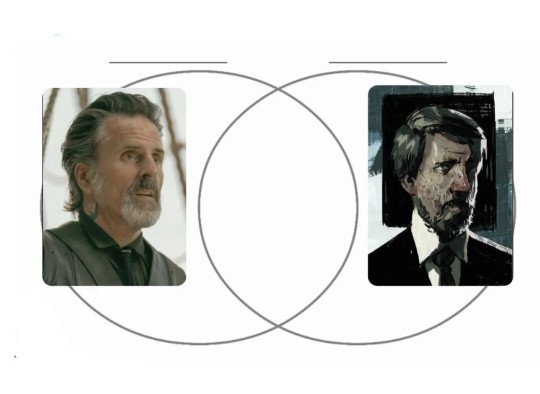
There is something these two fuckers have in common that I just can't quite articulate but I swear, it's there. Please see my vision. Please I'm not crazy-
#like obviously they both look vaguely alike#but idk#THERE IS SOMETHING#i CAN'T FIND THE WORDS#something about Izzy's relationship with ed and Jean's relationship with Harry#someone plz help me here#ofmd#our flag means death#disco elysium#izzy hands#jean vicquemare
86 notes
·
View notes
Text
also, on the same line of james potter being daltonic, sirius black has dyslexia
sword fight me if you disagree
#marauders#marauders era#the marauders#sirius black#sirius orion black#james potter#james fleamont potter#platonic prongstail#colorblind james is such a deer to me#but i think i have dyslexia and i'm a sirius kinnie so#sirius being dyslexic just makes sense to me#he mixes words everytime he writes them if they're minimally alike#dead gay wizards
28 notes
·
View notes
Text
I think male/gender neutral reader x Marito is necessary. I'm totally okay with female ones but that man is fruity as hell (just like the rest) so I'm surprised there are none yet. I also think this man is kinda dom bottom / versatile if you ask me but I have yet to find people who think the same (´・-・`)
#marito jin#jin marito#bucchigiri?!#bucchigiri x reader#he looks babygirl coded to me. Like he still kick ass and is menacing to enemies and allies alike#but he would kick his feet giggling and rolling in his bed when you reply to his messages#like an exchange he has your back but you have to accept his hugs and whisper sweet nothings to him#just by looking at Ara-teen Marito seem he would explode of joy if he physically could (when he wasn't in angry mode for what happened)#his love languages are quality time words of affirmation and physical touch imo. He's clingy af#he would twirl his hair if his crush return the affection in the way they know#he acts like a highschool girl in love. In a freaky endearing way#I would write it myself but rn I have many wips and ideas I thought first I can't do everything at once 🥲
36 notes
·
View notes
Text
I fear he has entranced and hypnotized me with his lame behavior and loser tendencies
#Yes this is about Kaido#kaido shun#shun kaidou#tdlosk#he’s so silly i love him#he’s literally me#(we’re nothing alike)#Words I’ve said !!
19 notes
·
View notes